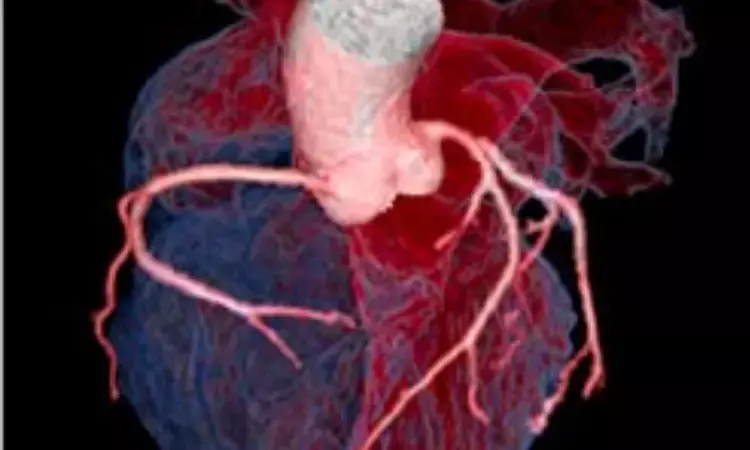- Home
- Medical news & Guidelines
- Anesthesiology
- Cardiology and CTVS
- Critical Care
- Dentistry
- Dermatology
- Diabetes and Endocrinology
- ENT
- Gastroenterology
- Medicine
- Nephrology
- Neurology
- Obstretics-Gynaecology
- Oncology
- Ophthalmology
- Orthopaedics
- Pediatrics-Neonatology
- Psychiatry
- Pulmonology
- Radiology
- Surgery
- Urology
- Laboratory Medicine
- Diet
- Nursing
- Paramedical
- Physiotherapy
- Health news
- Fact Check
- Bone Health Fact Check
- Brain Health Fact Check
- Cancer Related Fact Check
- Child Care Fact Check
- Dental and oral health fact check
- Diabetes and metabolic health fact check
- Diet and Nutrition Fact Check
- Eye and ENT Care Fact Check
- Fitness fact check
- Gut health fact check
- Heart health fact check
- Kidney health fact check
- Medical education fact check
- Men's health fact check
- Respiratory fact check
- Skin and hair care fact check
- Vaccine and Immunization fact check
- Women's health fact check
- AYUSH
- State News
- Andaman and Nicobar Islands
- Andhra Pradesh
- Arunachal Pradesh
- Assam
- Bihar
- Chandigarh
- Chattisgarh
- Dadra and Nagar Haveli
- Daman and Diu
- Delhi
- Goa
- Gujarat
- Haryana
- Himachal Pradesh
- Jammu & Kashmir
- Jharkhand
- Karnataka
- Kerala
- Ladakh
- Lakshadweep
- Madhya Pradesh
- Maharashtra
- Manipur
- Meghalaya
- Mizoram
- Nagaland
- Odisha
- Puducherry
- Punjab
- Rajasthan
- Sikkim
- Tamil Nadu
- Telangana
- Tripura
- Uttar Pradesh
- Uttrakhand
- West Bengal
- Medical Education
- Industry
STEMI caused by plaque erosion can be managed effectively without stenting: EROSION study

Republic of Korea: A recent study assessing the initial benefit of noninterventional therapy for patients with acute coronary syndrome caused by plaque erosion found that optical coherence tomography (OCT) demonstrated a further decrease in thrombus volume between a 1-month and 1-year follow-up. A majority (92.5%) of the patients remained free from major adverse cardiovascular events (MACE) for ≤1 year.
"92.5% of patients with the acute coronary syndrome (ACS) caused by plaque erosion managed with aspirin and ticagrelor without stenting remained free of the major adverse cardiovascular event for ≤1 year," wrote the authors.
In simpler words, results from the EROSION III Study showed that plaque erosion, not a rupture, could be left unstented, but the need for dual antiplatelet therapy likely persists. The study was published in the journal Circulation: Cardiovascular Interventions.
The initial EROSION study (Effective Anti-Thrombotic Therapy Without Stenting: Intravascular Optical Coherence Tomography–Based Management in Plaque Erosion) had shown that patients with acute coronary syndrome caused by plaque erosion might be stabilized with aspirin and ticagrelor without stenting for ≤1 month. However, there is a lack of long-term evaluation of outcomes. In the study, Lei Xing, Kyung Hee University Hospital, Seoul, Republic of Korea, and colleagues aimed to assess whether the initial benefit of noninterventional therapy for patients with acute coronary syndrome caused by plaque erosion is maintained for ≤1 year.
Among 53 patients who completed clinical follow-up, 49 underwent repeat optical coherence tomography imaging at 1 year.
The study revealed the following findings:
- Median residual thrombus volume decreased significantly from 1 month to 1 year (0.3 mm3 versus 0.1 mm3).
- Almost half of the patients (46.9%) had no residual thrombus at 1 year.
- Minimal effective flow area remained unchanged (2.1 mm2 versus 2.1 mm2 [1.6–4.0 mm2]).
- Among 53 patients, 92.5% remained free from major adverse cardiovascular events for ≤1 year: 5.7% of patients required revascularization because of exertional angina and 1.9% of patients had gastrointestinal bleeding.
"This study suggests the possibility of individualized therapy for patients with acute coronary syndromes," concluded the authors.
Reference:
"EROSION Study (Effective Anti-Thrombotic Therapy Without Stenting: Intravascular Optical Coherence Tomography–Based Management in Plaque Erosion): A 1-Year Follow-Up Report," is published in the Circulation: Cardiovascular Interventions.
DOI: https://www.ahajournals.org/doi/10.1161/CIRCINTERVENTIONS.117.005860
Dr Kamal Kant Kohli-MBBS, DTCD- a chest specialist with more than 30 years of practice and a flair for writing clinical articles, Dr Kamal Kant Kohli joined Medical Dialogues as a Chief Editor of Medical News. Besides writing articles, as an editor, he proofreads and verifies all the medical content published on Medical Dialogues including those coming from journals, studies,medical conferences,guidelines etc. Email: drkohli@medicaldialogues.in. Contact no. 011-43720751


